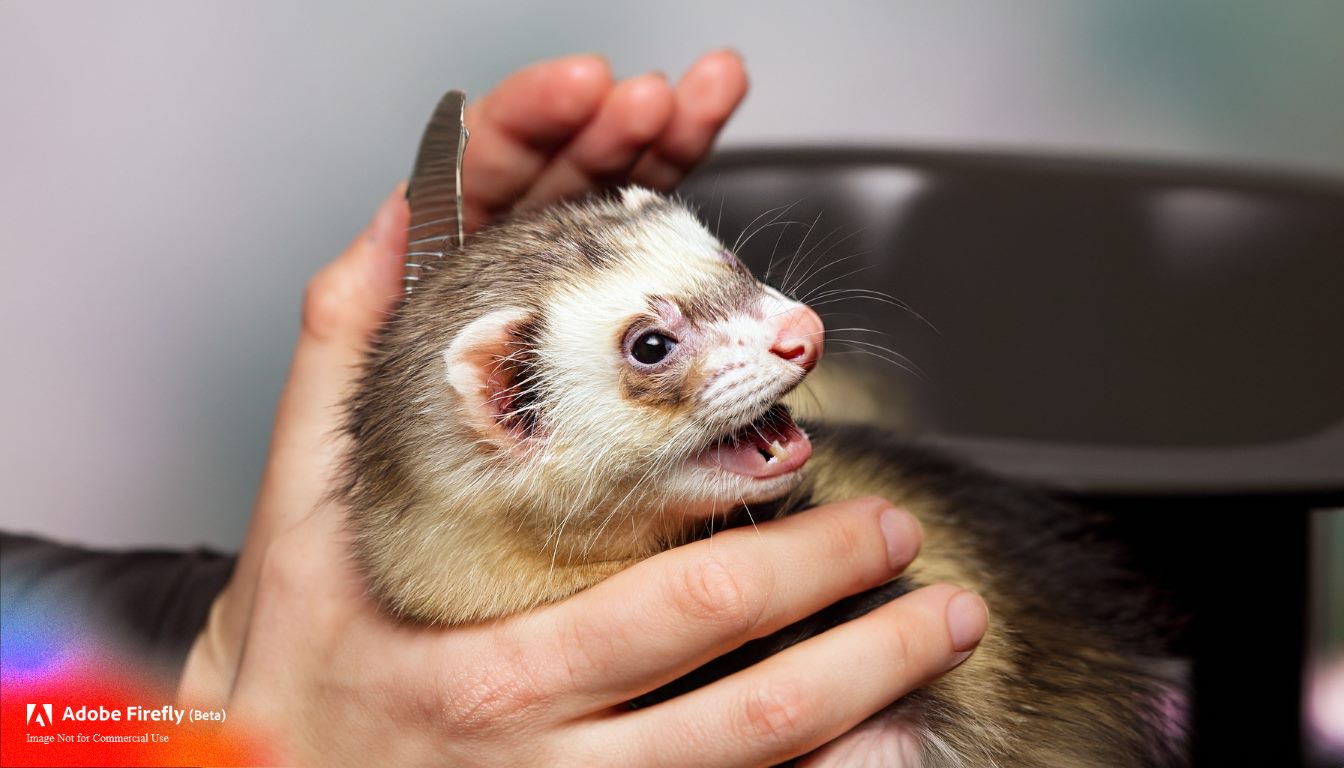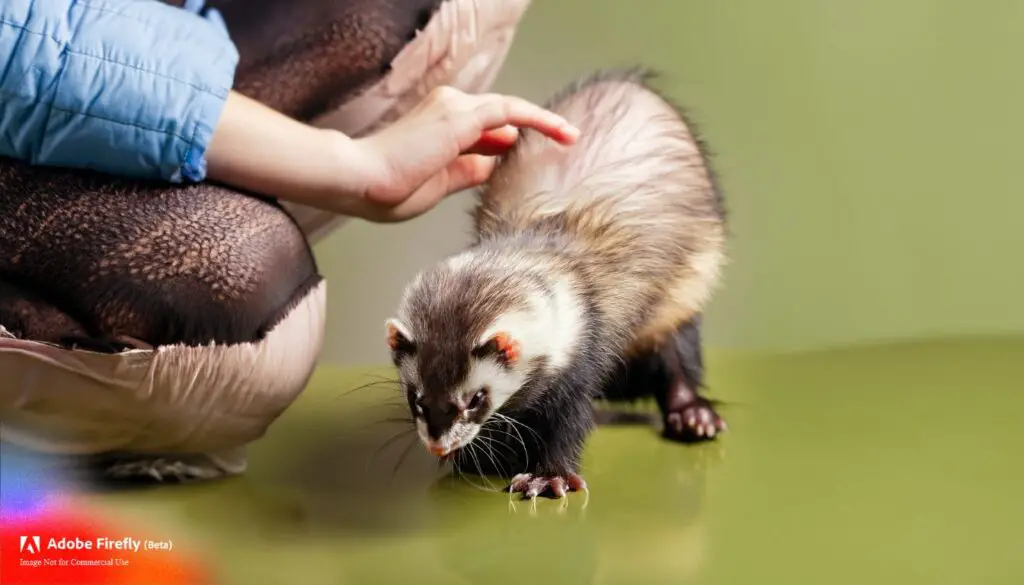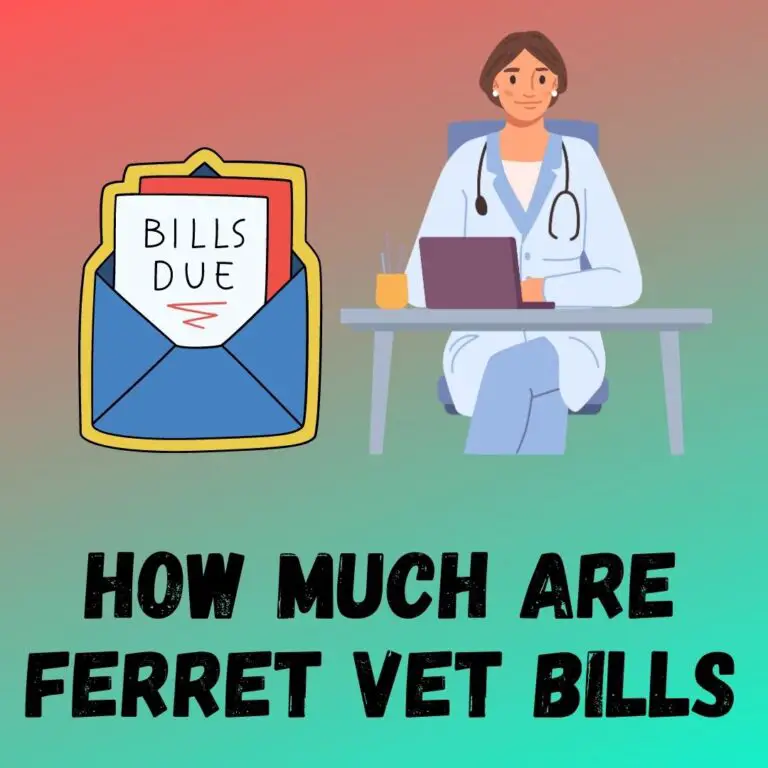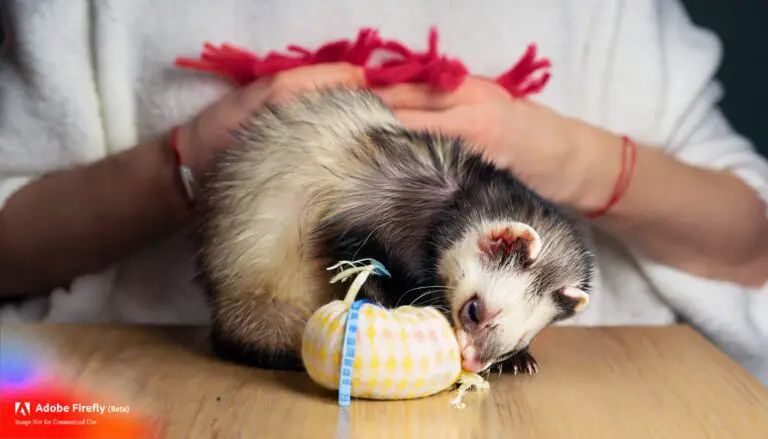
If you want to get a ferret, you have many options. Many people new to pet ferrets just head to their local pet store and buy the first animal they see. Although most pet stores are reputable, there are a few bad apples out there.
Many pet stores obtain their animals from professional breeders supposedly dedicated to breeding and raising high-quality, healthy animals. Unfortunately, not all breeders are that dedicated.
Ferret News and Advice Before Getting a Pet Ferret
Some breeders try to cut corners by using inferior feeds. Others cut their staffing levels to save labor costs, which can lead to dirty cages, inadequate food and/or water, and substandard medical care. While these particular breeders may take in more profit, the ferrets suffer for it by being less than healthy. The ultimate owner of the ferret also suffers by having to care for a sickly animal, which is not as enjoyable and also costs a lot more in vet bills.
One such case was fairly recently investigated in Pennsylvania. According to People for the Ethical Treatment of Animals (PETA), the Triple F Ferret Farm, which formerly raised ferrets for the Petland store chain, engaged in “animal cruelty” while raising the approximately 6,000 ferrets in their care.
PETA said it conducted a three-week-long undercover investigation at Triple F Farms in August, including video footage. The results of that investigation were subsequently filed with the U.S. Department of Agriculture (USDA), which initiated its internal investigation.

The USDA found, in its August 24 investigation, that among other things:
- Some of the ferrets’ cages had cut or bent wiring.
- Dead ferret bodies were in cages alongside live animals.
- Bags of ferret bedding were found to have crickets and other pests.
- Several of the enclosures had “excessive oil and debris.”
- Surgical openings created during the spaying process were not properly closed.
- Personnel did not follow proper sterilization procedures.
- Wood shavings were found mixed in with the food for young kits.
- Kibble was found to have leaked from at least two PVC pipe feeders, depriving the young ferrets housed there of “any food.”
The PETA video is grossly exaggerated and in many instances, patently untrue. We at Triple F Farms are committed to providing our customers with healthy ferrets, and abusing, mishandling or in any other way neglecting these animals would do nothing to help us meet that mission.
Triple F Farms responded to the claims in a September 13, 2011, press release:
The American Ferret Association has formally requested that Triple F Farms remove the association’s logo and other identifiers from all of the farm’s communications and facilities. Petland has also stopped purchasing its ferrets from that farm.
Triple F Farms was not formally charged with animal cruelty or similar charges. However, the USDA report urged the farm’s personnel to correct several violations. In addition, they were banned from performing “major operative procedures” until their veterinary-care practices were corrected.
So, what should prospective ferret owners do?
Stories of ferret cruelty such as this one should not scare you away from buying from a pet store. Most pet stores are reputable. If you see a carpet shark that you are interested in buying in a pet store, just make sure to do and ask the following:
- Get a written health guarantee from the store.
- Check carefully to determine whether the ferret is indeed well cared for. For example: Is the cage clean? Is there fresh food and water? Do the ferrets get to come out of the cage often? Do store staff members play and interact with the ferrets often?
- Are store staff members knowledgeable in ferret care?
- Most important, does the ferret seem healthy? Is its coat shiny? Is the ferret active? Does it seem depressed, agitated, or afraid?
First Option is to Get a ferret from verified Shelter
An alternative to buying your ferret from a pet store is to get your ferret from a ferret shelter. Often, this is less expensive than buying through a pet store.
Most ferret shelters also offer support after the adoption. Shelters are also generally choosy about human adoptive parents – they won’t allow their ferrets, which may have come from an abusive situation, to come to more harm.
Another option is to buy direct from a breeder.
To make sure a breeder is reputable, ask for references from previous purchasers. Also ask for a random tour of the facility. Does it seem clean? Do the ferrets seem healthy and well cared for? Does the breeder offer to help you learn the ropes of caring for the ferret after you bring it home?
A last option is to obtain a ferret through a classified ad.
While it is possible to do so, it can be risky because you will probably find little, if any, information about the ferret or its owner. You also probably will not be able take the animal back if the arrangement doesn’t work out.
Discover the critical steps in buying/adopting a ferret and the essentials of caring for these unique, loveable pets






